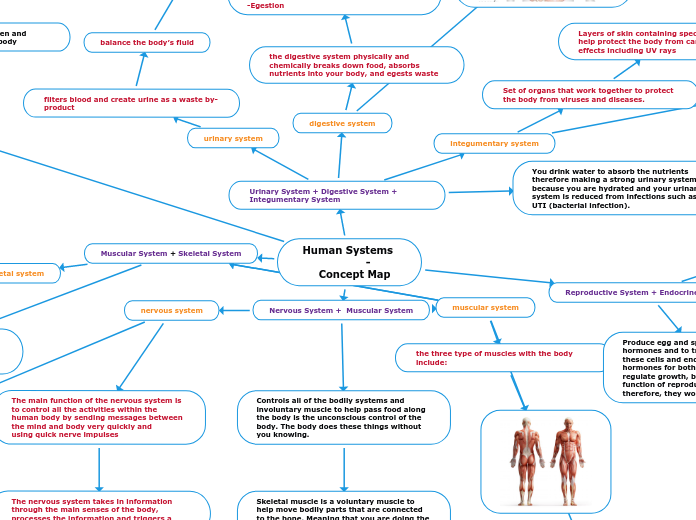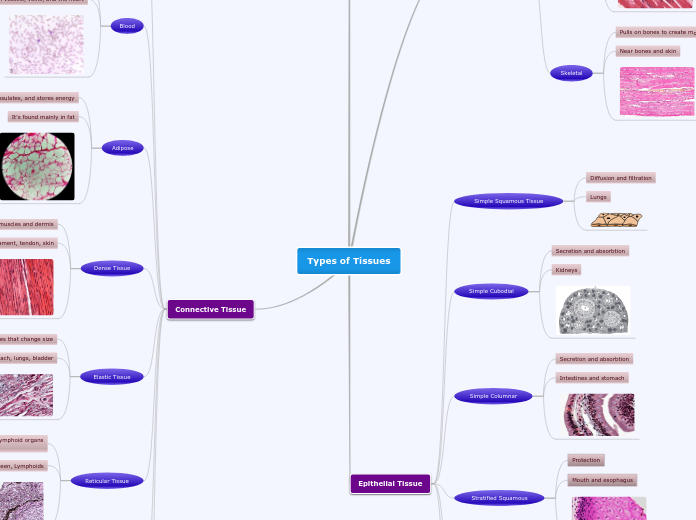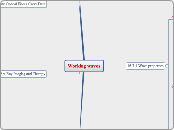Human Systems
-
Concept Map
Circulatory System + Respiratory System
Work together to circulate oxygen and blood throughout the cells and body
Cellular Respiration: blood carries oxygen from lungs throughout the entire body and gives carbon dioxide back to lungs to eliminate it.
The circulatory system is working with the respiratory system
Right ventricle pushes blood through the pulmonary valve into the pulmonary artery allowing the lungs to receive blood for oxygen.
This connects back to the circulatory and respiratory system because the right ventricle’s duty is to pump blood through the pulmonary valve into the pulmonary artery where it receives blood and oxygen.
respiratory system
The network of organs and tissues that help you breathe
Gas exchange
Breathing ( movement of air)
circulatory system
Pumps blood to the heart to the lungs
Heart sends oxygenated blood through the arteries back to the body
Veins carry deoxygenated blood to the heart to repeat the process
Reproductive System + Endocrine System
Endocrine system
Subtopic
Hormones for both males and females that regulate growth, blood sugar control and function of reproductive organs
Also includes the development of the brain and biological processes
Estrogens are for female development including the ovaries
reproductive system
The main function of the reproductive system are to produce egg and sperm cells, to produce hormones and to transport and sustain these cells
The reproductive systems are divided into two parts that have individual tasks. The primary system produces the egg, sperm and hormone cells. The secondary or accessory glands hold other reproductive glands
To keep the reproductive system working efficiently, one should maintain a healthy lifestyle. This includes having a proper diet, healthy body weight, enough sleep and reducing stress. One should also quit smoking and get regular check ups
Produce egg and sperm cells, to produce hormones and to transport and sustain these cells and endocrine system produces hormones for both males and females that regulate growth, blood sugar control and function of reproductive organs. So therefore, they work together.
Muscular System + Skeletal System
Work together to create the shape of your body, bones help you move along with the muscles attached to it because of the use of voluntary muscles
skeletal system
It gives the body structure and support
It protected the organ inside the body such as the heart,lungs and brain
It allows your body to move
Urinary System + Digestive System + Integumentary System
You drink water to absorb the nutrients therefore making a strong urinary system because you are hydrated and your urinary system is reduced from infections such as UTI (bacterial infection).
Also connects to the integumentary system because it is a set of organs that work together to protect the body from viruses and diseases. So by absorbing water, you are protecting your body from UTI and kidney infections.
integumentary system
Set of organs that work together to protect the body from viruses and diseases.
Layers of skin containing specialized cells to help protect the body from carcinogenic effects including UV rays
Sweat glands that secrete waste and regulate body temperature
digestive system
the digestive system physically and chemically breaks down food, absorbs nutrients into your body, and egests waste
the six things that are part of the digestive system are: -The mouth
-Swallowing
-The stomach
-The small intestine
-The large intestine
-Egestion
urinary system
filters blood and create urine as a waste by- product
balance the body’s fluid
release hormones to control blood pressure
Nervous System + Muscular System
nervous system
The main function of the nervous system is to control all the activities within the
human body by sending messages between the mind and body very quickly and
using quick nerve impulses
The nervous system takes in information through the main senses of the body, processes the information and triggers a reaction depending on the situation
Simple ways to keep the nervous system working effectively is to exercise daily, get enough sleep, add meditation into your routine, and stay hydrated
muscular system
the three type of muscles with the body include:
Cardiac muscle- works to supply blood throughout the entire body. The brain signals adapt the rate of contraction, the cardiac muscle triggers by itself to contract.
Smooth muscle- in the intestines, stomach and main organs. Involuntary muscle to help pass food along the body
Skeletal muscle- voluntary muscle to help move bodily parts that are connected to the bone.
Controls all of the bodily systems and involuntary muscle to help pass food along the body is the unconscious control of the body. The body does these things without you knowing.
Skeletal muscle is a voluntary muscle to help move bodily parts that are connected to the bone. Meaning that you are doing the action from your nervous system and the nerves that help you move








